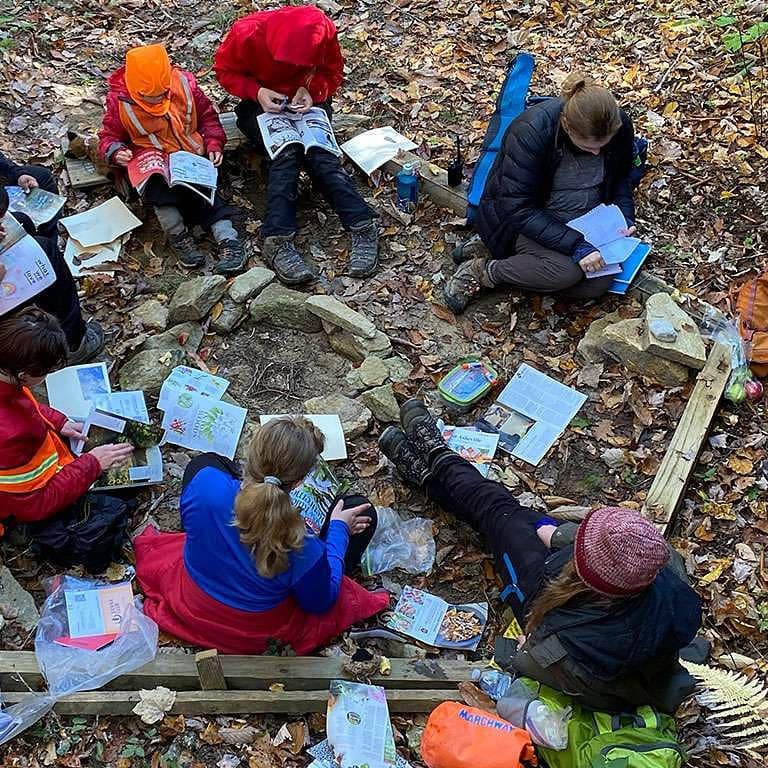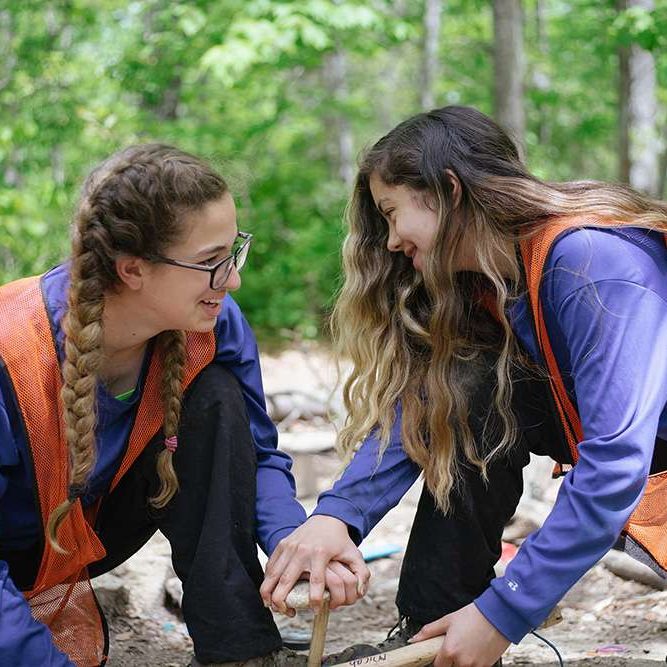Therapeutic Wilderness Program: A Safer And More Effective Alternative To Girls Boot Camps
If you are worried about the path that your daughter is on and you are ready to find real help for your child, it might be time to stop considering a boot camp for girls and start considering a better alternative: Trails Carolina's wilderness therapy for girls.
There are a variety of behaviors that might prompt parents to consider sending their daughters to a boot camp. Some examples of such behavioral issues might include: being defiant or disrespectful, substance use, school refusal or truancy issues, disruptive or aggressive behaviors toward family members or peers, self-harm, lack of motivation in school, anger management or trouble controlling emotions, or other risky behaviors.
Most boot camps are known for using "tough love", strict discipline, and a military-style approach, but are teen boot camps really the best option for troubled girls? While boot camps may be considered a quick-fix solution for behavioral issues, such programs use a punishment approach and often ends up doing more harm than good to young people.
Instead, therapeutic wilderness programs offer a more comprehensive and long-lasting approach that addresses the underlying causes of problematic behavior, making them a better alternative to help get kids back on the right track.
Over the years, Trails Carolina's wilderness therapy programs have emerged as a leader in safer and more effective alternatives to boot camps for defiant teenagers and adolescent girls. Here's why.
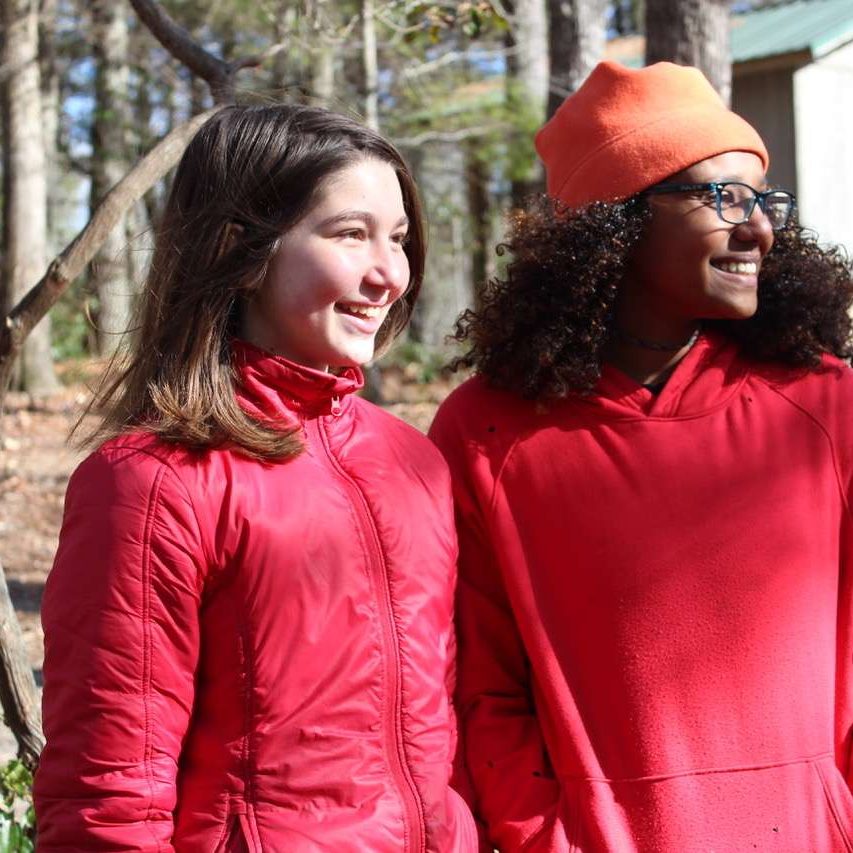
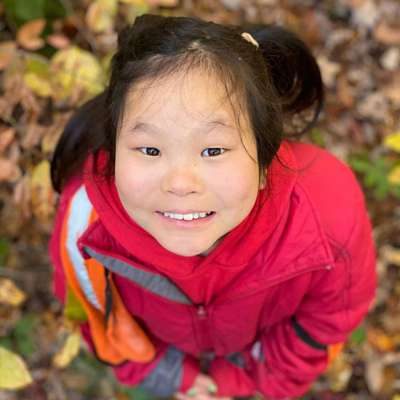
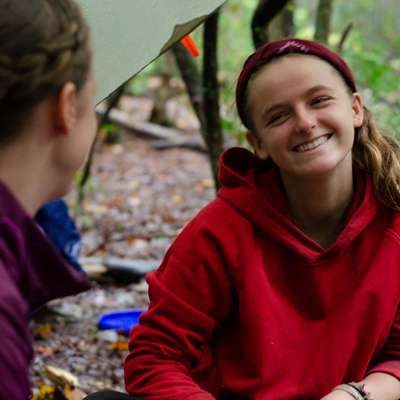
Trails Carolina Is Not A Teen Girls Boot Camp
Trails Carolina is a great alternative treatment center for troubled teen girls who struggle with anxiety, depression, oppositional defiance, emotional disorders, low self-esteem, school refusal, rebellious behavior, and more.
Our wilderness therapy programs use evidence-based therapeutic activities in a unique wilderness environment specifically designed to promote positive changes and long-term healing in the lives of troubled teenagers and their families.
The compassionate and masters-level therapists on our team work to identify the underlying causes of each student's behavioral and emotional issues so that the changes can be understood and maintained over time.
Request More information
Trails saved my daughter’s life. Amanda is an amazing human and a brilliant therapist. I am so grateful to her, Science Steve, and the other wonderful people who could reach my daughter at a time when I could not.
Margot Lowman August 2022
Great life changing experience for our son. After becoming addicted to gaming during covid he was very depressed. At Trails he experienced the wilderness, Science Steve, learning survival skills and top notch therapy and support etc… I highly recommend! This gave our son and our family a renewed family bond full of love and excitement about his bright future.
Winnifred Wilson July 2022
Outstanding clinical work and superb staff! There’s a great culture at this company and it shows with how they engage with families/clients.
Kristin Brace June 2022
What's The Difference Between A Wilderness Therapy Program And A Teen Boot Camp?
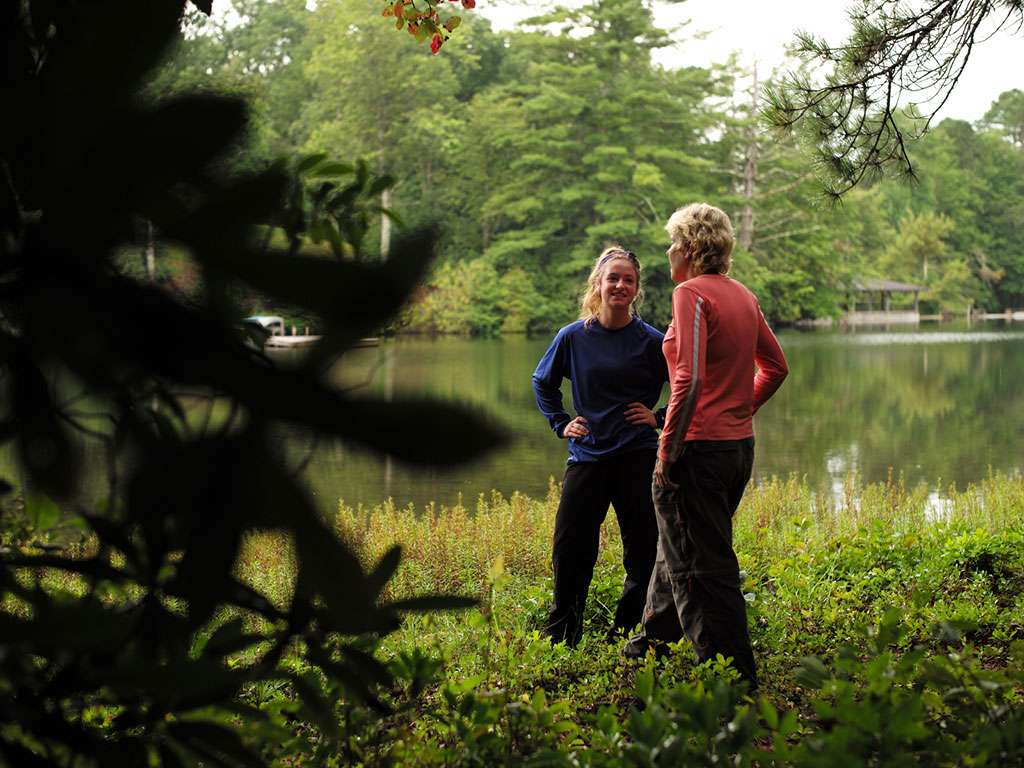
Individualized Treatment vs. "One-Size-Fits-All" Approach
Unlike boot camps, therapeutic wilderness-based troubled teen programs are designed to provide individualized treatment for each participant. This means that each girl is assessed and given a treatment plan tailored to their specific needs.
At Trails Carolina, the student and the parents are included in the development of the treatment plan. The treatment plan may include individual or group therapy, nature-based activities, and experiential education. This individualized approach allows for a more comprehensive treatment plan that addresses the root causes of the boy's behavioral problems.
This approach is vastly different to military-style boot camps, which use a uniform approach that may not address the specific needs of each participant.
Holistic Approach vs. Symptoms-based Approach
Wilderness therapy programs take a holistic approach to treating behavioral and mental health issues in troubled girls. The programs are designed to address not just the behavioral issues but also the underlying emotional and psychological factors that contribute to the problems. Students learn to develop healthy coping mechanisms and life skills that they can use to manage their emotions and behavior even after they leave the program.
In contrast, military-style boot camps tend to focus solely on behavior modification through discipline and structure, rather than addressing the underlying conditions that have led the child to develop certain "bad behaviors".

Safe & Supportive Environment vs. Harsh & Punitive Environment
Wilderness therapy programs prioritize safety and well-being. They are led by experienced and trained wilderness staff and compassionate mental health experts who prioritize safety and ensure that students are not put in dangerous situations.
Conversely, one of the main criticisms of military boot camps is their harsh, punitive approach to discipline. This can make issues worse or lead to physical and emotional distress or further trauma to the participants.
Lasting Behavior Change vs. Short-Term Dicipline
Wilderness therapy programs are thoughtfully designed and proven to offer long-term benefits that can last well beyond the end of the program. Students are given the tools and skills they need to self-regulate or manage their behavior and emotions, in the long term, which can lead to sustainable changes in behavior and improved relationships with family and friends.
In contrast, military-style boot camp experience tends to offer short-term discipline and may not provide participants with the tools they need to manage their behavior in the long term. They teach what not to do and label "bad behavior" without helping participants to develop healthier coping mechanisms to take their place.
The truth is that a boot camp is a band-aid. While boot camps for girls may intervene in behavior temporarily, a foundation of self-discovery necessary for sustained change over time is not created through fear or consequence-based experiences.
Focus On Positive Self-Reflection vs. Focus On Self-Shame
Wilderness therapy programs encourage participants to engage in self-reflection and introspection. This approach helps students understand the underlying factors that contribute to their behavior and develop strategies for managing their emotions and behavior in a healthy way. Engaging in thoughtful, compassionate self-reflection helps a student develop their own identity, one that they are proud of.
This approach contrasts with the emphasis on shame and blame within a boot camp setting. Additionally, due to the enforcement of a rigid schedule, boot camps may not provide participants with enough time for reflection or encourage self-exploration.
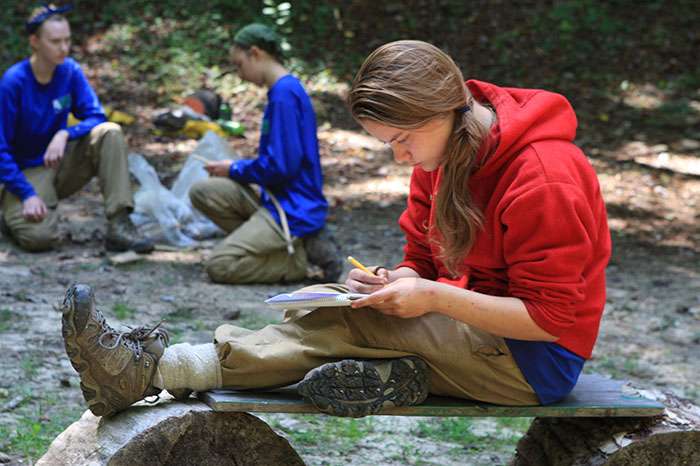
Builds Supportive Community vs. Isolates The Individual
Wilderness therapy programs focus on building a supportive community that encourages participants to support one another. At Trails Carolina, we segment our students into peer groups based on age and gender. This approach fosters positive group dynamics and has been shown to help our students develop healthy relationships with peers, better communication skills, leadership skills, and teamwork skills.
In a boot camp facility, the punitive approach tends to focus on individual behavior modification enforced by tough authority figures and may not prioritize the development of positive group dynamics.
Emphasis On Life Skills vs. Limited Skill-Building
A wilderness camp for troubled youth emphasizes the development of practical life skills, such as communication and problem-solving. This approach helps participants develop the skills they need to manage their emotions and behavior in the long term.
In contrast, with the focus on punishing "bad behaviors", troubled teen boot camps may not provide participants with enough opportunities to develop practical life skills.
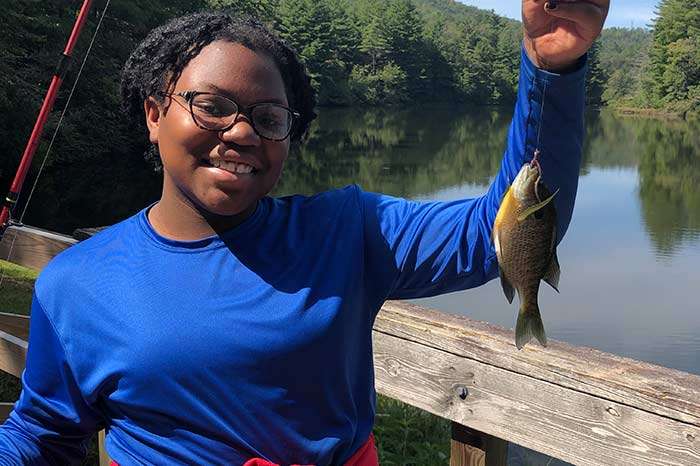
Exposure To Nature vs. Little Emphasis On Nature
Recognizing the research and evidence behind the therapeutic power of nature, wilderness therapy programs combine traditional therapy with a natural setting that removes students from the negative influences and distractions of their lives at home. In these programs, students are encouraged to connect with nature, which has been shown to have a positive impact on mental health and overall well-being.
Boot camps for troubled teenagers typically do not emphasize nature or the benefits of connecting with the natural world.
Personalized Aftercare Planing vs. Limited Post-Program Support
Wilderness therapy programs offer personalized aftercare planning that is tailored to the specific needs of each participant. This approach helps ensure that participants receive the support they need after the program ends.
At Trails Carolina, we prioritize wilderness therapy transitions and parallel family programming to prepare our students and their families for a successful transition post-program. Additionally, we offer Alumni Support Services for ongoing support.
Boot camps for troubled teens may not provide participants with enough support after the program ends to ensure a successful transition home.
Trails Carolina offers both Family Support and Integrated Academics for your Daughter
Why Choose Our Wilderness Camp For Troubled Girls?
Over the years, Trails Carolina has proven to be a leading wilderness therapy program. With an evidence-based therapeutic approach and integrated academic program, Trails Carolina has helped hundreds of teens and their families find lasting success and happiness. Trails Carolina’s rolling year-round programming for preteens and teens ages 10-17 can help your child experience progress in a relatively short amount of time.
Here are some of the reasons parents choose Trails Carolina for their struggling daughter:
- Family Programming: Our program includes integrated family programming which parallels the student’s progress and treatment throughout Trails. Family therapy sessions are also held on a regular basis.
- Smooth Transitions: Every aspect of our programming is designed to ensure lasting success long after a student graduates from Trails. We utilize transitions throughout our programming to practice carrying over therapeutic lessons within multiple settings.
- Accredited Academics: Trails Carolina’s accredited academic program provides a personalized academic plan for each student. Students are given the opportunity to learn in more hands-on settings, as well as traditional classroom settings. All credits transfer to make the transition from Trails run smoothly.
- Useful Life Skills: Throughout their time at our camp for troubled teens, students learn useful skills and experience personal growth. They learn teamwork, leadership, responsibility, and personal awareness.
Our camp for troubled girls is dedicated to helping teens work through behavioral or emotional difficulties, build trusting relationships with their family and peers, and achieve academic success.
Trails Carolina’s wilderness camp for troubled girls helps adolescent and teen girls who are struggling with behavioral and emotional challenges such as defiance, depression, and anxiety. Our team of expert mental health professionals uses evidence-based, trauma-informed practices that work exceptionally well for students struggling with the following behaviors and challenges:
- School refusal
- Depression
- Anxiety
- Family conflict
- Low self-esteem
- Social isolation
- Self harm
- Adoption issues
- Defiant behavior
- Gaming and technology obsession
- Substance use
- Attachment issues
- Manipulative behavior
- Poor academic achievement
- Learning differences
- ADHD
- Trauma
Wilderness Therapy At Trails Carolina Shifts The Locus Of Control
Locus of control is defined as an individual’s expectations regarding the behaviors that determine rewards and punishments.
Children with an internal locus of control view events as resulting from their own actions. Children with an external locus of control view events as being under the control of external factors such as Mom, Dad, teachers, and other authority figures. For example, a child with an internal locus of control might interpret a failure in school as a result of a lack of effort or focus, whereas a child with an external locus of control might blame their teacher’s poor instruction.
Most Boot Camps Reinforce A Misplaced Sense Of Control. Wilderness Therapy Doesn't.
Many of the kids we work with at Trails Carolina have a misplaced sense of control. They believe they have no control over what happens to them and how they react to those events. This creates a sense that they cannot be held accountable in any way because it’s always someone else’s fault. This type of thinking demotivates kids to take positive action because they don’t feel they have any control over their future.
Most boot camps for troubled youth reinforce this external locus of control. The focus is often on external factors thereby reinforcing a misplaced locus of control.
Unlike these boot camps, at Trails Carolina wilderness therapy for girls, our goal is to help students recognize their role in their outcomes and help them establish healthier habits and coping skills. Perceived self-efficacy helps to account for such diverse changes in behavioral problems.
At Trails Carolina, we are passionate and committed to creating the best wilderness therapy programs possible for students and families alike and we know that lasting change takes far more intention than the militant approach of a boot camp.

